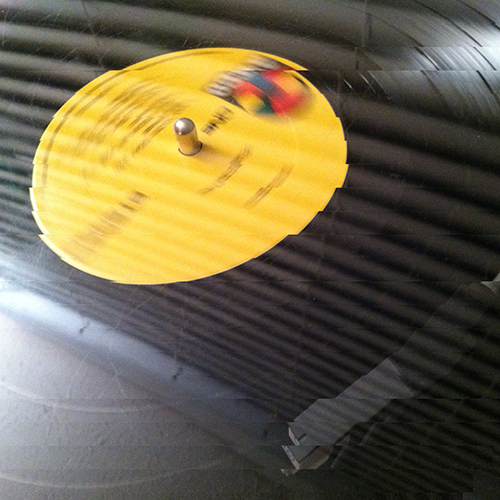Track 1
There was that time we almost died, which is to say every day because that’s how life works, but in particular this is about the night we took the back way and then the dark shortcut around the back way, and the road went downhill and farther downhill and turned and turned and kept turning long past the point where turning made sense. How grateful we were to be so scared.
Track 2
The boys we were. The boys we would become. The boys who never existed. Someone is always going to be tallest, fastest, strongest, most handsome. Sometimes one person gets all the gifts. The day will be shaped by how the rest of us deal with such a discrepancy. Loyalty means holding hands even if you’re homophobic.
Track 3
There was that girl we each gave the keys to our mouth. Waited for her to choose. Back then we didn’t know the difference between want and other kinds of want.
Track 4
Our bodies crack open early. Our skin splits and lets in the lightning. One of us laid down a motorcycle to avoid killing a dog. Left a meaningful amount of flesh and blood on the asphalt, a beautiful and gory smear. A donation. The price of a forever scar.
Track 5
There was naturally the problem of music itself. Of choosing instruments and keeping time, and the way trees in the South take tentative root in the crumbling red clay. When you grow up in Alabama, you understand you are never alone. You understand the earth leaves a stain.
Track 6
There was that girl again. Every time she used one of our names was a kind of prayer, a kind of answer. I don’t mean to make desire sound more sacred than it is.
Track 7
All writing is done from memory. How much is lost between a thought and the recording of that thought? Between an experience and any pretense at understanding that experience. Between her lips and the lyrics that mention them. We were the kind of boys who drowned such questions in sweet tea and staying up all night.
Track 8
When a storm came from the south, it brought the gulf, the brack and bitter of saltwater, the scent of mystery. When it came from the west, it brought more wind than we could handle, all uproot and damage.
Track 9
There was a map of the city where we lived, its efficient New Deal homes and straight roads, all those mowed lawns and the churches that contained us. The highway a mile north. The rivers that carried us away. I thought I took the map when we parted, but I cannot find it.
Track 10
Imagine the disagreements. Some of us speak to speak, some to be heard. All of us know music is a substitute for sex but no one says so aloud. Is it still performance if there is no song and no audience? Is it possible to be keenly aware of the possibility of suffering if none of us has truly suffered?
Track 11
In any group of five or more, one of you is certain to believe wholly in the mind while another is all gut. The rest, rather than choosing sides, arrange themselves in reasonably orderly fashion along this spectrum. The most obvious error is thinking our patterns of behavior will evolve past this origin.
Track 12
Our problem was never a lack of self-awareness. It was awareness only of self. And each other. We were aware of each other. If you don’t realize how close to the edge we all are, all the time, every moment, close your eyes and see how long you can hold your breath.
___
Amorak Huey is author of the chapbook The Insomniac Circus (Hyacinth Girl, 2014) and the forthcoming poetry collection Ha Ha Ha Thump (Sundress Publications, 2015). A former newspaper editor and reporter, he teaches at Grand Valley State University in Michigan. His poems and essays appear in The Best American Poetry 2012, The Southern Review, Essay Daily, Cartridge Lit, The Cincinnati Review, and elsewhere.
Photography by Laura Frantz


7 comments
Lisa Nik... says:
Jan 20, 2015
I love your form here. So great!
Heather says:
Feb 2, 2015
So intriguing. Really loved tracks 10-12
Julie says:
Feb 14, 2015
I love the whole thing, and especially the beautiful weight it took on near the end.
Nicole says:
Mar 11, 2015
This is totally stunning, so beautifully rendered.
C.C. says:
Mar 17, 2015
This is fabulous, haunting.
Jon Magidsohn says:
Mar 31, 2015
Nicely done. I’m so glad people still have an imagination within the craft of writing.
Marcus Hirschman says:
Mar 1, 2024
STUNNING!! love this – so poetically pleasing